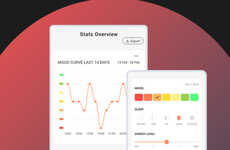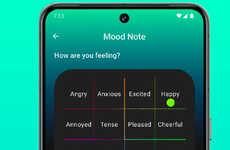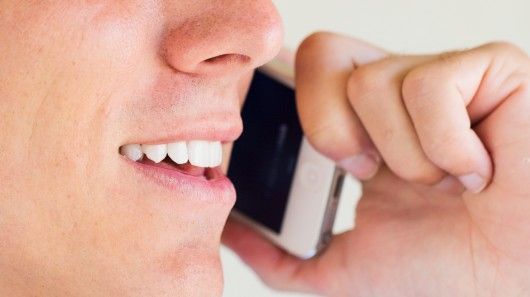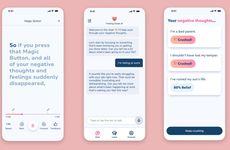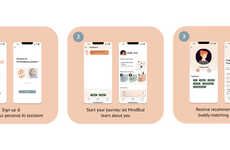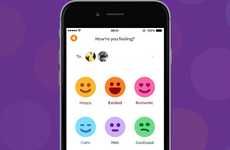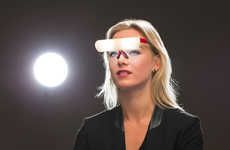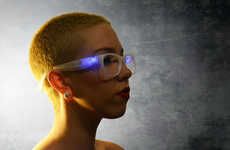
The PRIORI App Predicts Moodswings Associated with Bipolar Disorder
Rahul Kalvapalle — May 13, 2014 — Lifestyle
References: uofmhealth.org & gizmag
Researchers at the University of Michigan developed the PRIORI app to help detect moodswings associated with bipolar disorder, a condition where patients swing between depressive and manic states that can lead to dangerous behavior. The Android app listens to patients' phone conversations and uses voice cues to look for signs of upcoming moodswings.
The PRIORI app constantly runs in the background on the patient's smartphone and records all incoming and outbound calls. It analyzes the patient's voice and looks for subtle speech pattern changes that are known to be associated with the onset of depressive or manic episodes.
Before patients can use the app, a baseline must be set which establishes the patient's average, 'normal' mood. The phone uses this baseline as a benchmark around which moodswings occur. This means that the longer the app is used by the patient, the better it is able to predict their moodswings.
Once these patterns are detected, the patient and their caregivers can be alerted to that preventive and precautionary measures can be taken.
The PRIORI app constantly runs in the background on the patient's smartphone and records all incoming and outbound calls. It analyzes the patient's voice and looks for subtle speech pattern changes that are known to be associated with the onset of depressive or manic episodes.
Before patients can use the app, a baseline must be set which establishes the patient's average, 'normal' mood. The phone uses this baseline as a benchmark around which moodswings occur. This means that the longer the app is used by the patient, the better it is able to predict their moodswings.
Once these patterns are detected, the patient and their caregivers can be alerted to that preventive and precautionary measures can be taken.
Trend Themes
1. Mood-swing Tracking Apps - Opportunity for mental health apps to use real-time voice analysis to predict and track mood swings in patients with bipolar disorder.
2. Voice Recognition Technology - Development of AI systems and voice recognition software will provide more accurate mood tracking data for healthcare professionals.
3. Personalized Health Technology - Personalized mental health apps that can adapt to individual patient needs will be increasingly popular and in-demand.
Industry Implications
1. Healthcare - Healthcare professionals can utilize mood-tracking technology to provide more accurate diagnoses and treatment plans for bipolar disorder patients.
2. Software Development - Opportunity for software professionals to innovate and create new AI and voice recognition software that can predict and track mood swings for mental health patients.
3. Mobile App Development - Opportunity for app developers to create personalized mental health apps that monitor and predict mood swings, and alert patients and caregivers when necessary.
3.1
Score
Popularity
Activity
Freshness



